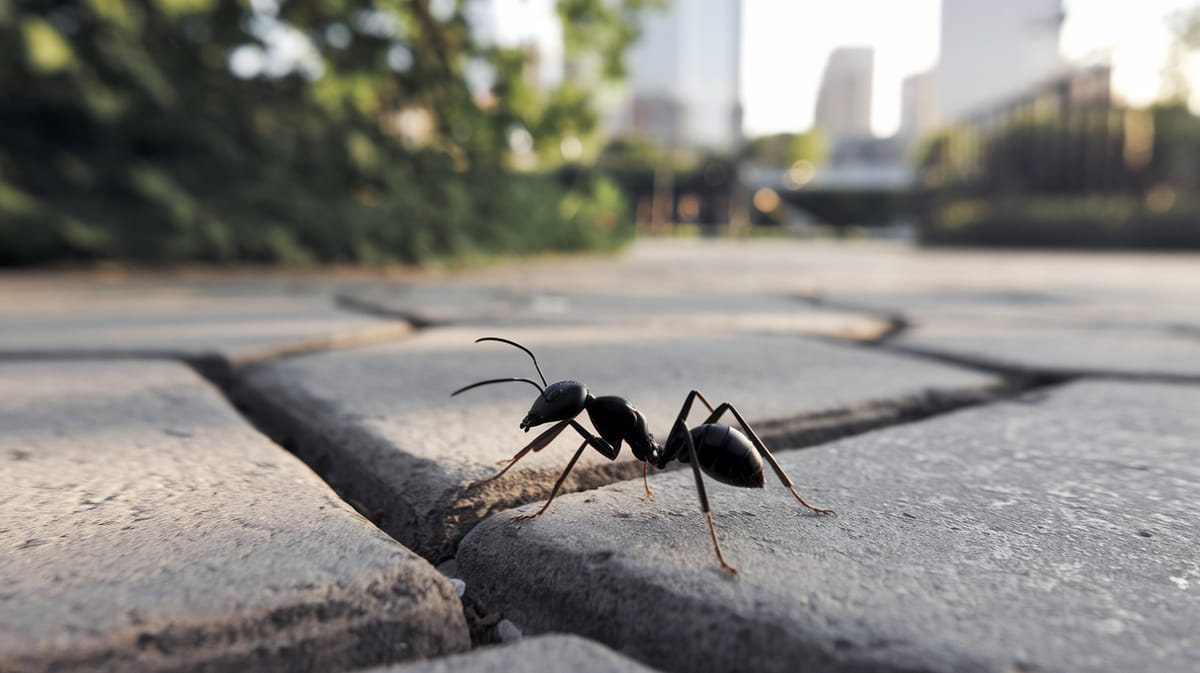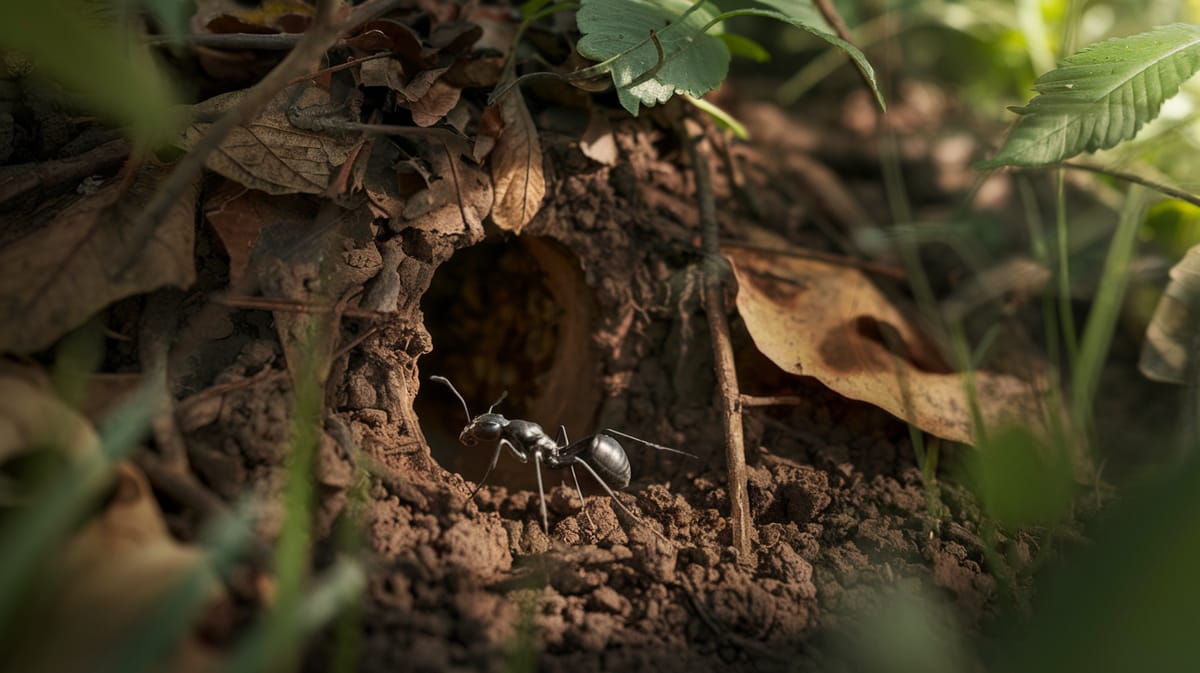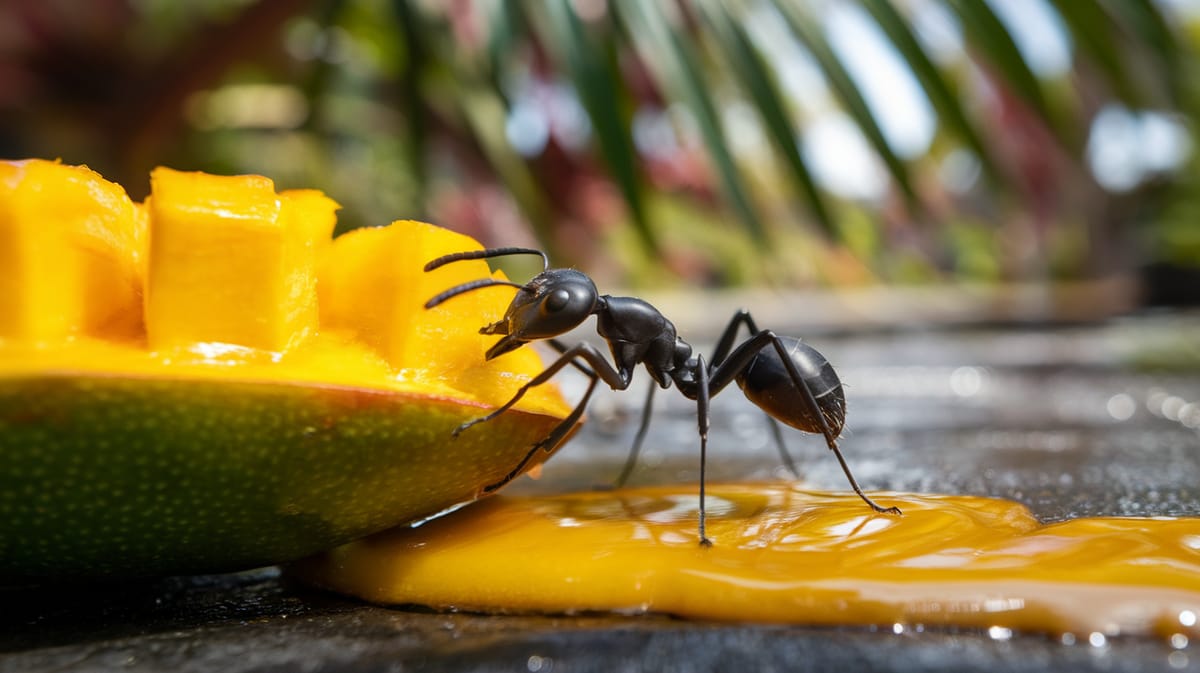Black Garden Ant
Industrious and social, the Black Garden Ant excels in building complex underground colonies. Vital to ecosystems, they aerate soil and control pest populations naturally.

Gallery

Key Insights at a Glance
Did You Know?
Taxonomy & Classification
Black Garden Ants exhibit a complex social structure and remarkable adaptability, thriving in various environments due to their efficient foraging and communication skills. Let's understand the evolutionary journey and classification of these remarkable decomposers.
Global Presence
Lasius niger, commonly known as the Black Garden Ant, is found across Europe and parts of Asia and North America, showcasing its adaptability.
Evolutionary Success
Evolving over 100 million years ago, Black Garden Ants have survived major climatic shifts due to their social organization and resourcefulness.
Lifecycle and Growth
A remarkable journey of transformation from Egg to Adult.
Egg
Tiny, oval eggs are laid by the queen, initiating the colony's growth and requiring warmth and care from worker ants.
Larva
Larvae are fed by workers through trophallaxis and grow rapidly, shedding skin multiple times.
Pupa
Pupae resemble adults but remain inactive, enclosed in a cocoon while undergoing transformation into adult ants.
Adult
Adults emerge from pupae as workers, soldiers, or future queens, each playing a crucial role in colony maintenance and expansion.
Dietary Habits
A resourceful forager with opportunistic feeding strategies, this insect primarily consumes plant materials and sugary substances from various sources.
| DIET TYPE | DESCRIPTION |
|---|---|
| Primary Diet | Main diet includes honeydew from aphids, nectar, and other sweet substances, essential for energy and sustenance. |
| Secondary Diet | Feeds on small insects and larvae, which provide proteins necessary for colony growth and development. |
| Occasional | Occasionally consumes seeds, fruits, and food scraps, adapting to available resources in its environment. |

Behaviour and Adaptations
Discover the intriguing abilities that make the Black Garden Ant a master of its environment.
Cooperative Foraging
Efficiently gathers food through teamwork, maximizing resource collection.
Nest Building
Constructs complex, multi-chambered nests for colony protection and efficiency.
Chemical Communication
Utilizes pheromones for precise communication and organization within the colony.
Ecosystem Impact
Enhancing ecological balance through the vital roles of the Black Garden Ant.
Soil Aeration
Improves soil structure by tunneling, enhancing water and nutrient penetration.
Seed Dispersal
Aids in plant diversity by transporting and dispersing seeds.
Organic Matter Recycling
Breaks down organic material, enriching soil with nutrients.
Conservation Challenges
Addressing major threats to Black Garden Ant populations and their ecosystems.
Pesticide Exposure
Widespread pesticide use diminishes ant colonies and disrupts ecological balance.
Habitat Fragmentation
Urban sprawl and agriculture reduce available habitats, affecting ant survival.
Climate Variability
Temperature and precipitation shifts challenge ant foraging and nesting.
Frequently Asked Questions
How long do Black Garden Ant live?
Black Garden Ants typically live for several years. Queen ants may live up to 15 years, while worker ants generally survive for about one to three years. Their lifespan can vary depending on environmental conditions and availability of resources.
What do Black Garden Ant eat?
Black Garden Ants mainly consume honeydew produced by aphids and other small insects. They also feed on sugary substances, plant secretions, and occasionally small insects or dead animals. Their diet can adapt based on available resources.
Are Black Garden Ant poisonous?
Black Garden Ants are not poisonous to humans. They do not pose significant health risks and are generally considered harmless. They can become a nuisance if they enter homes in search of food.
Are Black Garden Ant endangered?
Black Garden Ants are not endangered. They are a common and widespread species found across Europe and other parts of the world. They thrive in various habitats, including gardens, meadows, and urban areas.
What do Black Garden Ant symbolize?
Black Garden Ants often symbolize hard work, diligence, and teamwork in various cultures. They are seen as a representation of industriousness due to their organized social structure and relentless work ethic.
Do Black Garden Ant bite?
Black Garden Ants can bite if provoked, but their bites are not harmful to humans. They lack the ability to sting and their bites are usually mild, causing minor irritation at most.
What color are Black Garden Ant?
Black Garden Ants are typically dark brown to black in color. Their uniform dark appearance helps them blend into their environment, making them less noticeable to predators and humans.
Does a Black Garden Ant have wings?
Only reproductive Black Garden Ants, specifically queens and males, have wings. They use these wings during their mating flights. After mating, queens shed their wings, and males usually die shortly after.
What does a Black Garden Ant look like?
Black Garden Ants have a shiny, dark brown to black body, segmented into a head, thorax, and abdomen. They have six legs and bent antennae. Queens are larger than workers, while males are similar in size to workers but more slender.
Is a Black Garden Ant an insect?
Yes, a Black Garden Ant is an insect. It belongs to the Formicidae family within the order Hymenoptera. Like all insects, it has a three-part body structure, six legs, and a pair of antennae.
Related Insects
Discover insects with similar characteristics to Black Garden Ant - including shared habitats, diets, and taxonomic classifications
Share this profile
Help others discover Black Garden Ant